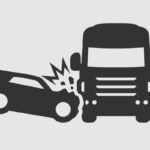
Partner at AKD Lawyers
Practice Areas: Personal Injury

A car accident can turn your life upside down in an instant. Beyond the immediate shock and physical pain, you may find yourself overwhelmed with medical bills, lost income, and emotional distress. How do you determine what compensation you’re entitled to? What factors affect your claim’s value? Understanding car accident damages is crucial to ensuring you don’t settle for less than you deserve. This guide breaks down the different types of damages, how they are calculated, and what steps you can take to maximize your compensation. Whether you’re dealing with insurance companies or considering legal action, knowing your rights can make all the difference.
Types of Damages in Car Accident Claims
Economic Damages
Economic damages cover tangible financial losses that result from an accident. These losses are relatively straightforward to calculate because they have a precise dollar amount attached to them.
Medical expenses often make up the most significant portion of economic damages. This includes costs for emergency room visits, surgeries, prescription medications, physical therapy, and any ongoing medical treatment. Even minor injuries can lead to substantial medical bills, especially if follow-up care is required.
- Lost wages are another key component. If you are unable to work due to your injuries, you may be entitled to compensation for lost income. In cases of long-term disability, future lost earnings can also be factored into the claim.
- Property damage covers the cost of repairing or replacing your vehicle. If your car is totaled, the insurance company typically reimburses you for its market value before the accident. Additional property losses, such as damaged electronics or personal belongings inside the vehicle, may also be included.
Non-Economic Damages
Unlike economic damages, non-economic damages are more challenging to quantify. These cover the emotional and psychological toll of the accident.
Pain and suffering compensation is meant to address the physical pain and emotional distress caused by the accident. This includes chronic pain, anxiety, depression, and PTSD, which many accident victims experience long after their physical injuries have healed.
Loss of enjoyment of life may also be considered. If your injuries prevent you from engaging in activities you once enjoyed, such as sports, hobbies, or even spending time with family, this can factor into your claim.
Punitive Damages
Punitive damages are awarded in cases where the at-fault driver acted with extreme recklessness or intentional misconduct. These damages are not meant to compensate the victim but to punish the wrongdoer and deter similar behavior in the future.
In Georgia, for example, courts apply punitive damages to cases with aggravating circumstances, such as a DUI accident caused by a driver with a history of DUIs, or where a driver had time to avoid a hazard but refused.

Factors Influencing the Value of Your Claim
Several factors impact how much compensation you may receive after a car accident. The severity and permanence of your injuries play a significant role. More serious injuries that require extensive medical treatment or result in long-term disability typically lead to higher settlements.
Another important factor is the impact on your daily life and ability to work. If you are unable to return to your job or if your ability to earn a living is permanently reduced, your claim value will increase.
The extent of property damage also influences compensation. A totaled vehicle or extensive damage strengthens a claim for higher reimbursement.
The credibility of the evidence is crucial. Substantial supporting documentation, such as medical records, accident reports, and witness statements, can significantly impact your case.
Comparative negligence laws in your state can also affect the amount of compensation you receive. If you were partially at fault for the accident, your settlement may be reduced based on your percentage of responsibility.
Calculating Damages: Methods and Approaches
The Multiplier Method
One common approach to calculating non-economic damages is the multiplier method. In this method, economic damages are multiplied by a factor ranging from 1.5 to 5, depending on the severity of the injuries. For example, if your medical bills and lost wages total $20,000 and a multiplier of 3 is applied, you may be entitled to $60,000 in non-economic damages.
The Per Diem Approach
Another method is the per diem approach, which assigns a daily rate for pain and suffering based on the victim’s earnings. If a person earns $200 per day and takes 100 days to recover, their pain and suffering damages would be valued at $20,000.
Insurance adjusters and attorneys may use both methods, along with other factors, to determine a fair settlement.
Legal Process for Seeking Compensation
The first step after a car accident is to seek medical attention and document the incident. Even if injuries seem minor, a medical evaluation will ensure your health and create an official record for your claim.
Next, file an insurance claim. This involves notifying your insurance company and providing the necessary documentation. Be cautious when dealing with adjusters, as their goal is to minimize payouts.
If settlement negotiations fail, you may need to file a lawsuit. Each state has a statute of limitations, which sets a deadline for filing a personal injury claim. Acting quickly ensures you don’t lose your right to compensation.
Insurance companies generally determine car accident liability after claims are filed. Liability is based on police reports, drivers’ statements, eyewitnesses, points of impact, and other evidence.

Role of Legal Representation in Maximizing Compensation
Hiring an experienced personal injury attorney can significantly improve your chances of receiving full compensation. Lawyers help gather and present evidence, handle negotiations with insurance companies and represent you in court if necessary.
An attorney can also identify additional sources of compensation, such as uninsured motorist coverage, and ensure you don’t settle for less than you deserve.
Types of Damages
| Type of Damage | Description | Examples |
| Economic Damages | Financial losses due to the accident. | Medical bills, lost wages, car repairs. |
| Non-Economic Damages | Compensation for emotional distress and suffering. | Pain and suffering, loss of enjoyment of life. |
| Punitive Damages | Punishment for reckless or intentional behavior. | Drunk driving accidents, hit-and-run cases. |
FAQs
What should I do immediately after a car accident to support my compensation claim?
Seek medical attention, take photos of the scene, exchange contact information with other parties, collect witness statements, and obtain a police report. These steps strengthen your claim and help ensure fair compensation.
How is fault determined in a car accident?
The fault is assessed based on evidence such as police reports, witness statements, accident scene photos, and expert analysis. In some cases, accident reconstruction specialists may be used to determine liability.
Can I still receive compensation if I was partially at fault for the accident?
Yes, under comparative negligence laws, you may receive compensation, but the amount will be reduced based on your percentage of fault. For example, if you are found to be 20% at fault, your settlement may be reduced by 20%.
How long do I have to file a car accident claim?
The deadline for filing a claim depends on your state’s statute of limitations, typically ranging from one to four years. It’s essential to consult an attorney as soon as possible to avoid missing deadlines.
What if the insurance company’s settlement offer is too low?
You have the right to negotiate. An attorney can help counter low offers, provide evidence to support a higher payout, and take legal action if necessary to get fair compensation.
Conclusion
Recovering from a car accident is more than just healing physically—it’s about securing the financial and emotional compensation you need to move forward. Understanding the types of damages available, how they are calculated, and the legal process involved can significantly impact the outcome of your claim. From medical expenses and lost wages to pain and suffering, every aspect of your case matters.
At AKD Law, we understand the challenges accident victims face, and we’re here to help. Our experienced personal injury attorneys will fight to ensure you get the full compensation you deserve. Don’t let insurance companies undervalue your claim—contact AKD Law today for a free consultation, and let us protect your rights.
Categories

In 2003, after being dissatisfied with the quality of legal care for victims of car accidents, Roderick ‘Rico’ Alvendia sought to establish a new firm focused on providing high-quality legal services to aid injured victims and their families. J. Bart Kelly, sharing Rico’s passion for upholding justice, joined the firm later that year, and established a partnership.






